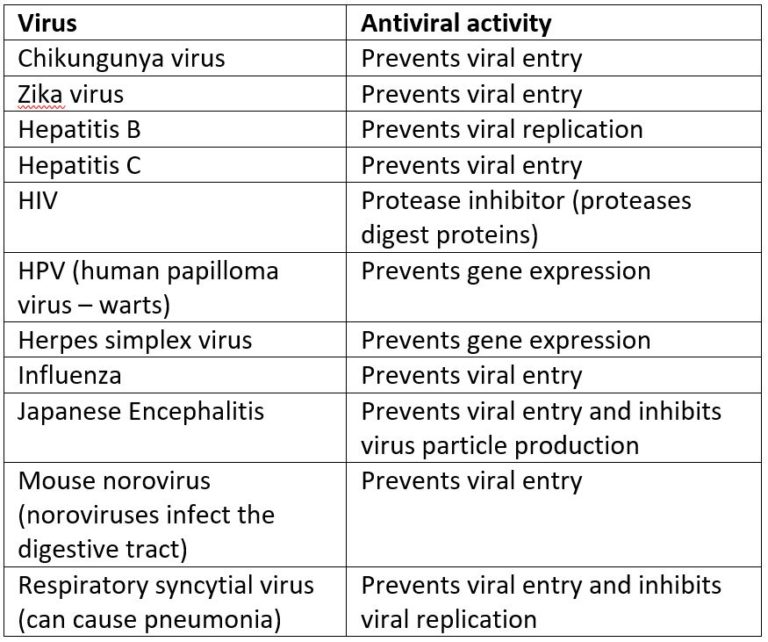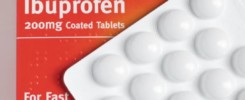Curcumin is the active chemical in the spice turmeric. It has long been known that curcumin has many beneficial effects on inflammatory conditions, cancer, and infections. A 2019 article in Frontiers in Microbiology further investigated the antibacterial and antiviral actions of curcumin and found that it was very effective against several viruses including influenza, hepatitis C, HIV, as well as strains of bacteria that can cause secondary infections after viral infections such as staphylococcus, streptococcus, and pseudomonas.
This is the chemical structure of curcumin.

Turmeric is in the same family of plants as ginger, which also has anti-inflammatory properties. Curcumin is the principle component of the yellow pigment, which is the major bioactive substance. Several herbs have been shown to have some antiviral effects including:
- Curcumin
- Oregano
- Sage
- Garlic
- Ginger
- Green tea
- Cinnamon
- Ginseng
- Dandelion
How does Curcumin work?
Some recent studies have found that curcumin is significantly effective in preventing certain aspects of viral infection, see summary chart:

It seems that curcumin has the unique ability to bind to modulate features of the lipids in cell membranes that contain receptors that virus particles bind to, having the effect of reducing viral entry into cells. Curcumin also acts as a potent anti-inflammatory and reduces lung inflammation, which is beneficial for respiratory infections that cause the immune system to over-react and produce excessive mucus and vascular permeability that causes fluid to move into tissues from the capillaries. Curcumin has the effect of preventing entry of many viruses into our cells, fewer cells infected means a decreased viral load and therefore a less severe infection.
A 2018 study showed that curcumin was also effective against a pig version of enteric (digestive system) coronaviruses that cause diarrhea by preventing entry into cells and also by reducing replication. Although there are no studies yet looking specifically at COVID-19, there is ample evidence to suggest that curcumin would be a beneficial supplement to help reduce the severity of infection.
Curcumin supplements
Curcumin is recognized as safe by the FDA and clinical trials show that very high doses have no adverse effects. Up to 8g per day have been used without adverse effects. Curcumin on its own is not easily absorbed in the small intestine. Bioavailability can be increased by combining curcumin with black pepper, which contains piperine and has been shown to increase absorption by 2000%.
Research studies use doses of 500 – 2000mg per day, most commonly in the form of a curcumin extract capsule. Using grated turmeric root in food provides about 60-100mg. Turmeric spice contains about 3% curcumin. If you decide to try a curcumin supplement, get a reputable brand from a health food store. Caution should be taken if you are a diabetic taking insulin because curcumin can lower blood sugar, also if you are taking medications to reduce blood clotting. It can interfere with iron absorption so use with caution if you have iron-deficiency anemia. It also contains oxalates so do not take curcumin if you have oxalate related kidney stones.
References
Anti-infective Properties of the Golden Spice Curcumin
Curcumin inhibits Zika and chikungunya virus infection by inhibiting cell binding
Multi-Site Inhibitors for Enteric Coronavirus: Antiviral Cationic Carbon Dots Based on Curcumin
Antiviral potential of curcumin
Curcumin: A Review of Its’ Effects on Human Health
Turmeric dosage and curcumin image


Thank you for researching and summarizing the anti viral properties of curcumin. I can see you put a lot of thought into the way you presented it, stating what has been proven so far and what it could possibly do for specific infections. Hopefully it is now being studied in more detail to see if it may be useful in the fight against COVID-19 in people.
You always write great reports Wendi!
Love, Dad😉